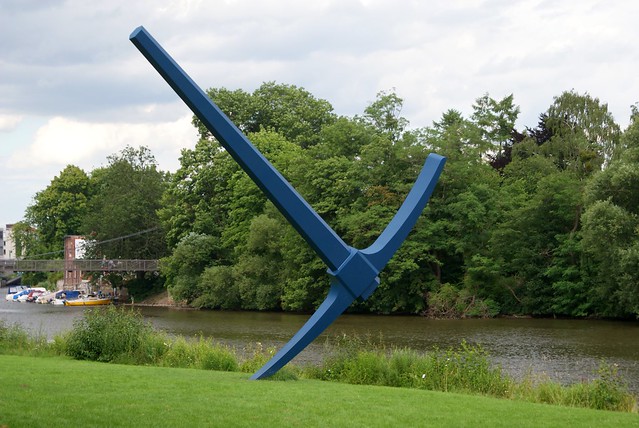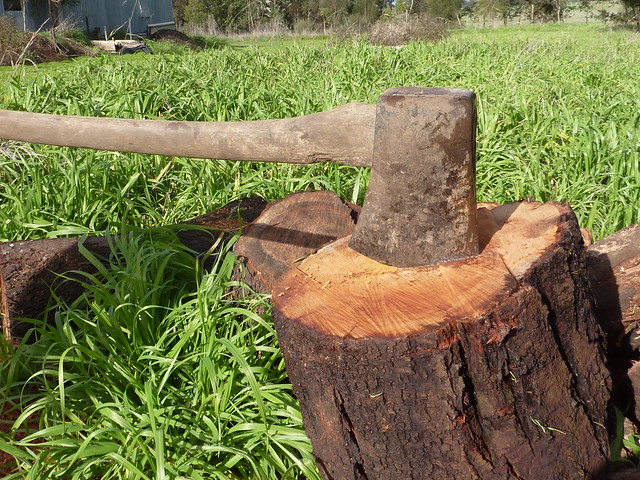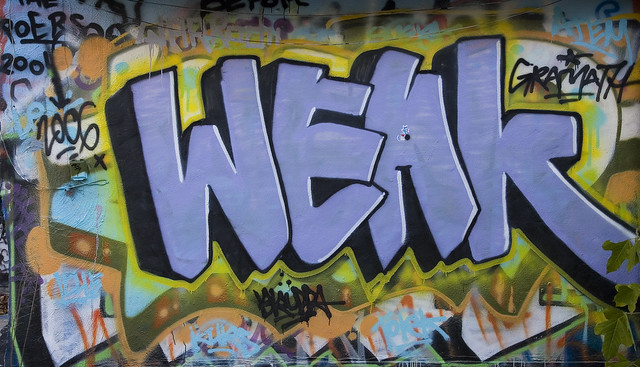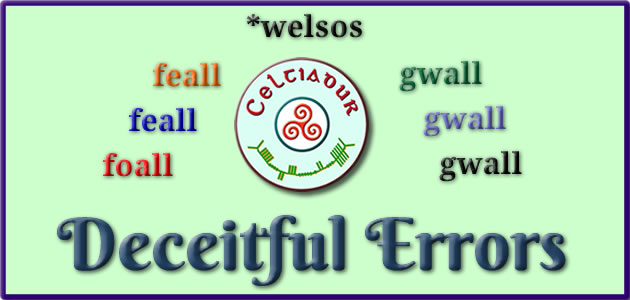Words for modest and related things in Celtic languages.
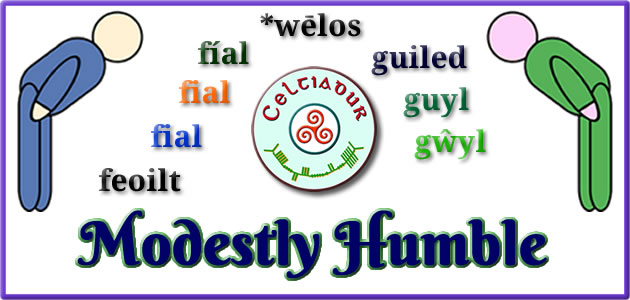
Words marked with a * are reconstructions.
| Proto-Celtic | *wēlos = modest |
|---|---|
| Old Irish (Goídelc) | fíal [fʲiːa̯l] = becoming, generous, genteel, seemly, well-bred |
| Middle Irish (Gaoidhleag) | fíal = decorous becoming, seemly (of conduct or behavious), modest, chaste, well-bred, honourable, noble fíalmar = noble-natured, generous |
| Irish (Gaeilge) | fial [fʲiəlˠ] = seemly, proper, noble, generous, hospitable fialmhaireacht = open-handedness, generosity fialmhaitheas = goodness of heart, generosity fialmhar = open-handed, generous |
| Scottish Gaelic (Gàidhlig) | fial [fiəl̪ˠ] = generous, unstinting, liberal, open-handed, bountiful, hospitable fial-chridheachd = altruism fial-inntinneach = open-minded, liberal-minded fialach [fiəl̪ˠəx] = generous, unstinting, liberal, open-handed, bountiful, hospitable fialachd [fiəl̪ˠəxg] = generosity, liberality fialaiche = provider of hospitality |
| Manx (Gaelg) | feoilt = benevolent, bountiful, generous, munificent feoiltagh = benevolent, bounteous, free, lavish, liberal, unselfish |
| Old Welsh (Kembraec) | guiled = shame |
| Middle Welsh (Kymraec) | guyl, gwyl, gŵyl = modest, bashful, unassuming, unobstrusive guilat, gwylat = merry, glad, lively gwylder = modesty, bashfulness, humility, feeling faint gvilet, gwylet, gwyled = modesty, humility, gentleness, shame |
| Welsh (Cymraeg) | gŵyl = [ɡuːɨ̯l/ɡʊi̯l] = modest, bashful, unassuming, unobstrusive, mild, tender, gentle, gracious, joyous, glad, generous, kind gwylad = merry, glad, lively gwyldeb = modesty, bashfulness gwylader, gwyldra = modesty, bashfulness, humility, feeling faint gwyledd = modesty, humility, gentleness, meekness, courtesy, graciousness, joy, shame |
Etymology: possibly from the PIE *wey- (turn) or *wāg- (to be bent), which is related to vagus (wandering, roaming) in Latin, from which we get the English words vague and vagabond [source].
| Old Irish (Goídelc) | umal [ˈuṽal] = humble, obedient umaldóit = humility umlaigid = to humble |
|---|---|
| Middle Irish (Gaoidhleag) | umal = humble, obedient, submissive umaldóit, omaldóit, umallóit = humility uimligid, huimligte, umlaigid = to humble |
| Irish (Gaeilge) | umhal [uəl̪ˠ/uːlˠ] = humble, submissive, lithe, supple, plant umhlaigh = to humble, bow, submit, obey, stoop umhlaíocht = humility, submission, obedience, dutifulness, respect umhlóid = humility, submission, lowly service, attendence, ministration, suppleness, pliancy umhlú = genuflection, curtsey, obesiance, submission |
| Scottish Gaelic (Gàidhlig) | umhal [ũ.əl̪ˠ] = submissive, obedient, humble, lowly, meek |
| Manx (Gaelg) | imlee = humble, lowly, menial, simple imlagh = humble, humbling imlaghey = humble, stoop |
| Old Welsh (Kembraec) | humil = humble |
| Middle Welsh (Kymraec) | huvyll, uvell = merry, glad, lively uỽyl, vffil = humble, meek, submissive ufullder, uvyllder = humility uỽyltaỽd, uvylldaỽt, vuildaud, vffyldaud = humility |
| Welsh (Cymraeg) | ufyl = humble, meek, submissive ufyllter, ufullter = humility ufylltod, ufulltod, ufelltod, hufylltod = humility hyful = humble |
| Old Cornish (Cernewec) | huvel, hyvbl, evall = humble, lowly huveldot = hunility hyvla = tp be humble, to be obedient, to obey |
| Middle Cornish (Cernewec) | huvel, hyvbl, evall = humble, lowly huveldot = hunility hyvla = tp be humble, to be obedient, to obey |
| Cornish (Kernewek) | uvel = humble, lowly, modest uvelder = humility |
| Middle Breton | vuel, uuel = humble, meek, lowly uffuelhat = to humiliate (oneself) vuelaff, uvelañ = to humble oneself vueldet, vuheltet = humility, humbleness, meekness vulder, vuelder, uffuelter = humility, humbleness |
| Breton (Brezhoneg) | uvel [ˈyː.vɛl] = humble, meek, lowly uvelded, uvelder = humility, humbleness, meekness uvelaat = to humiliate |
Etymology: from the Latin humilis (low, lowly, small, slight, shallow), which is also the root of the English word humility, the French humilité (humility), and the humildad (humility, humbleness) [source].
The Cornish word klor means meek, mild, moderate, modest and klorder means modesty. Their origins are not known
Sources: Wiktionary, Am Faclair Beag, Online Manx Dictionary, Teanglann.ie, eDIL – Electronic Dictionary of the Irish Language, In Dúil Bélrai English – Old Irish glossary, Geiriadur Prifysgol Cymru, Gerlyver Kernewek, Lexicon Cornu-britannicum: A Dictionary of the Ancient Celtic Language of Cornwall, Dictionaire Favereau, TermOfis, Le dictionnaire diachronique du breton, Etymological Dictionary Of Proto Celtic







